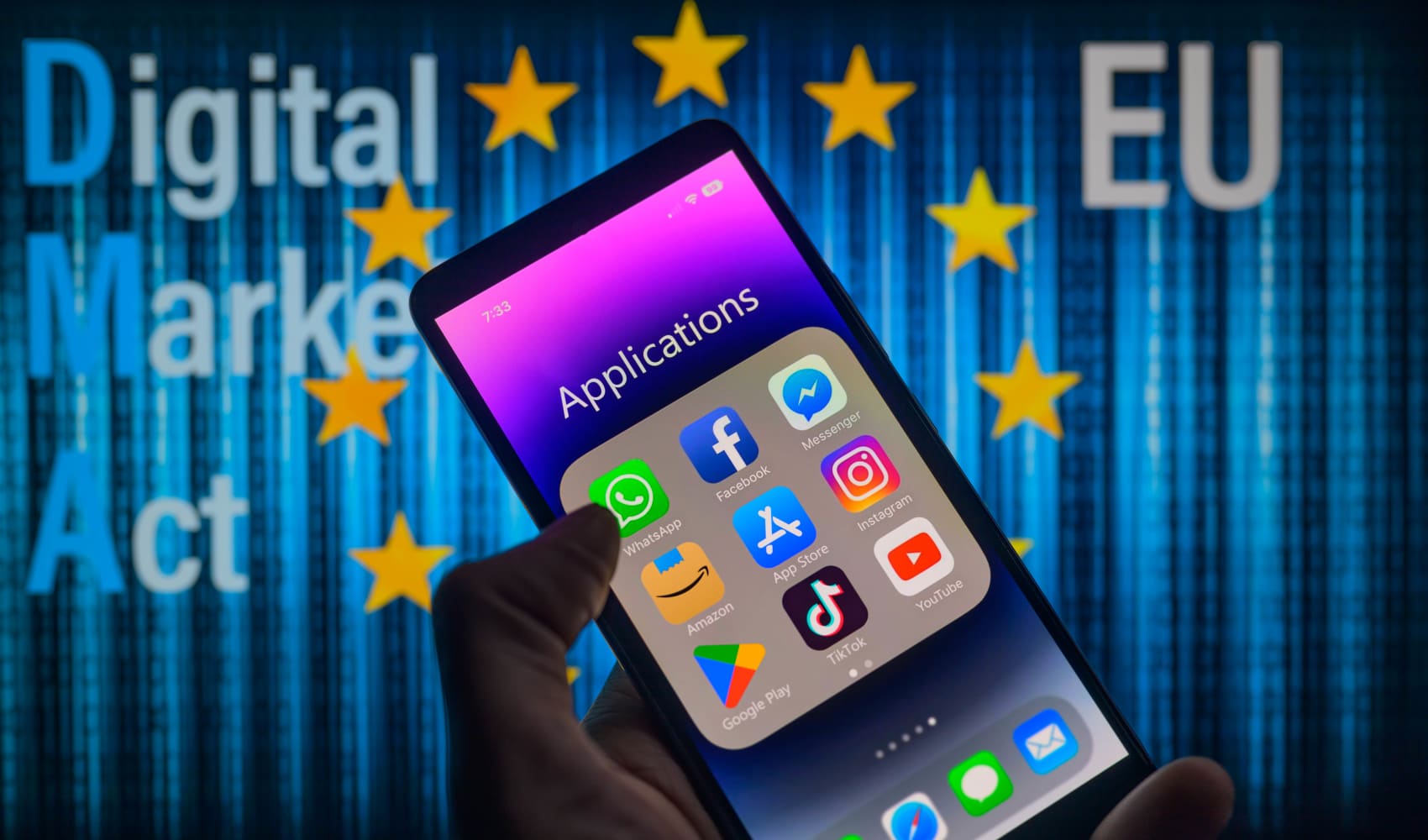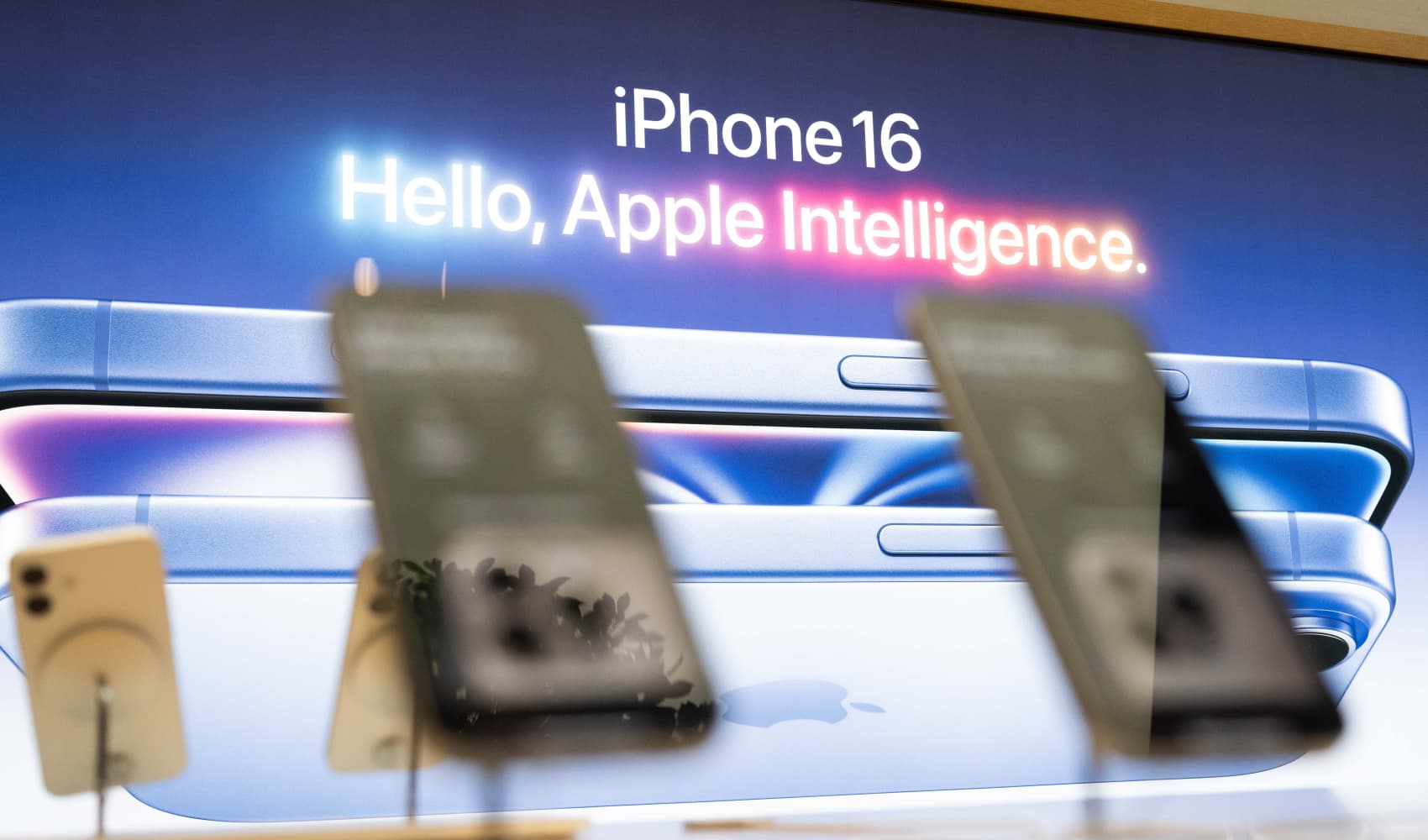EU Fines Apple & Meta $800M: What it Means for You
EU Slaps Apple and Meta with $800M Fines: US Trade War Heats Up?
Introduction: A Digital Showdown in Europe
Hold on to your hats, folks, because the European Union just dropped a bombshell on two of the biggest tech giants in the world: Apple and Meta. In a move that's sending ripples through the digital landscape, the EU has fined these titans a combined total of nearly $800 million for allegedly violating the bloc's digital competition laws. But what's really going on here? Is this simply about fair play in the digital marketplace, or is there something more at play – perhaps a signal in the escalating U.S. trade tensions?
Apple's Anti-Steering Snafu: A $571 Million Lesson
The European Commission, the EU's executive arm, didn't mince words. Apple was hit with a hefty 500 million euro ($571 million) fine for failing to comply with "anti-steering" obligations under the Digital Markets Act (DMA). But what exactly does "anti-steering" mean in this context?
What is Anti-Steering?
Imagine you're running a lemonade stand, and the big soda company next door tries to prevent customers from even knowing you exist. That's essentially what anti-steering aims to prevent in the digital world. The DMA requires companies like Apple to allow developers to freely inform users about cheaper subscription options or purchases outside of Apple's own App Store. Think of it as giving consumers a fair choice, not forcing them down a single, profitable path.
Apple's App Store: A Walled Garden?
For years, Apple's App Store has been criticized as a "walled garden," where Apple controls not only the gate but also the paths within. The EU argues that Apple's restrictions on developers communicating with their customers about alternative purchasing options stifle competition and inflate prices. Essentially, developers are forced to use Apple's payment system, paying a commission, and are not allowed to tell users that cheaper options exist elsewhere.
Meta's Data Dilemma: Pay-or-Consent Controversy
Meta, the parent company of Facebook and Instagram, wasn't spared either. The EU Commission slapped them with a 200 million euro ($228.4 million) fine for allegedly forcing users to either consent to sharing their data or pay for an ad-free service. This "pay-or-consent" model has raised serious concerns about data privacy and consumer choice.
Is Your Data the Price of Admission?
Think about it: Are you truly consenting to share your data if the alternative is being locked out of a service you rely on for communication, entertainment, and even business? The EU argues that Meta's approach doesn't meet the standards of genuine, freely given consent under the General Data Protection Regulation (GDPR).
GDPR: Protecting Your Digital Footprint
The GDPR is the EU's landmark data protection law, and it's all about giving individuals control over their personal data. It requires companies to obtain clear, informed, and unambiguous consent before collecting and using personal information. The EU argues that Meta's "pay-or-consent" model puts undue pressure on users, undermining the spirit of GDPR.
The Digital Markets Act (DMA): A New Sheriff in Town
Both Apple and Meta's fines are based on violations of the DMA, a groundbreaking piece of legislation aimed at curbing the power of so-called "gatekeeper" companies. The DMA targets large digital platforms that control access to key digital services, such as app stores, search engines, and social media platforms.
Who are the "Gatekeepers"?
The DMA defines "gatekeepers" based on their size, market capitalization, and the number of users they serve. These companies are subject to a set of strict rules designed to promote competition and prevent them from abusing their dominant position. Think of it as a digital antitrust law, designed to level the playing field.
What the DMA Aims to Achieve
The DMA aims to achieve several key objectives:
- Promote innovation and competition in the digital marketplace.
- Give consumers more choice and control over their digital experiences.
- Prevent gatekeepers from engaging in unfair practices that harm smaller businesses.
US-EU Trade Tensions: A Brewing Storm?
While the EU insists that these fines are solely about enforcing its competition laws, some observers see them as part of a broader trend of growing trade tensions between the US and Europe. Are these fines purely regulatory, or are they partly influenced by geopolitical considerations? It's a complex question with no easy answer.
The Digital Tax Debate
For years, the EU has been pushing for a digital tax on the revenues of large tech companies, many of which are based in the US. This has been a contentious issue, with the US arguing that such taxes unfairly target American businesses. The digital tax debate is just one example of the ongoing trade disagreements between the two economic powerhouses.
Geopolitical Implications
In an increasingly multipolar world, the EU is seeking to assert its own regulatory authority and digital sovereignty. These fines against Apple and Meta can be seen as a signal that the EU is serious about protecting its citizens and promoting competition in the digital age, even if it means clashing with powerful US companies.
What's Next for Apple and Meta?
Both Apple and Meta have indicated that they will appeal the EU's decisions. These legal battles could drag on for years, potentially setting important precedents for the future of digital regulation.
Appeals and Legal Challenges
Expect a protracted legal fight. Both companies have deep pockets and teams of lawyers ready to challenge the EU's rulings. The outcome of these appeals will have significant implications for how the DMA is interpreted and enforced.
Adapting to the New Regulatory Landscape
Regardless of the outcome of the appeals, Apple and Meta will need to adapt to the new regulatory landscape in Europe. This could mean making significant changes to their business practices, including how they operate their app stores and handle user data. The era of unchecked dominance may be coming to an end.
The Impact on Consumers: More Choice or More Confusion?
Ultimately, the goal of the DMA is to benefit consumers by giving them more choice and control over their digital lives. But will these regulations actually achieve that goal? There are legitimate concerns that they could also lead to more confusion and fragmentation.
The Promise of Greater Choice
If the DMA is successful, consumers could benefit from lower prices, more innovative products, and greater control over their data. They might finally be able to break free from the walled gardens of the tech giants and explore a wider range of options.
The Risk of Fragmentation
On the other hand, there's a risk that the DMA could lead to a more fragmented digital ecosystem, where services are less integrated and interoperable. This could make it harder for consumers to find what they're looking for and could stifle innovation in some areas.
Conclusion: A Turning Point in Digital Regulation?
The EU's fines against Apple and Meta are a clear sign that the era of self-regulation in the digital world is over. The DMA represents a bold attempt to rein in the power of the tech giants and promote a more competitive and equitable digital marketplace. Whether it will succeed remains to be seen, but one thing is certain: the digital landscape is changing, and these fines mark a significant turning point.
Frequently Asked Questions (FAQs)
Q1: What exactly is the Digital Markets Act (DMA)?
The Digital Markets Act (DMA) is a European Union law aimed at regulating large digital platforms ("gatekeepers") to ensure fair competition and prevent anti-competitive practices. It imposes specific obligations on these companies, such as allowing interoperability and preventing self-preferencing.
Q2: Why were Apple and Meta fined by the EU?
Apple was fined for violating "anti-steering" rules under the DMA, preventing developers from informing users about alternative purchasing options outside of Apple's App Store. Meta was fined for its "pay-or-consent" model, requiring users to consent to data sharing or pay for an ad-free service, which the EU deems as not truly consensual.
Q3: What is "anti-steering" in the context of the EU's ruling against Apple?
"Anti-steering" refers to practices that prevent developers from freely informing users about cheaper subscription or purchasing options outside of the app store's ecosystem. The EU believes Apple's restrictions on developers violate DMA's objective to promote fair competition and give consumers more choice.
Q4: How does the "pay-or-consent" model violate GDPR?
The "pay-or-consent" model is problematic under GDPR because it puts undue pressure on users to consent to data sharing to avoid being locked out of a service. GDPR requires consent to be freely given, informed, and unambiguous, which the EU argues is not the case when users are essentially forced to choose between privacy and access.
Q5: What are the potential long-term effects of these fines on the tech industry?
These fines could signal a shift towards stricter regulation of big tech companies worldwide. They may lead to changes in business practices, increased scrutiny of data privacy policies, and more emphasis on promoting competition and consumer choice in the digital marketplace. Other regions might adopt similar regulatory approaches.



